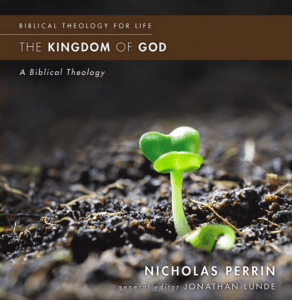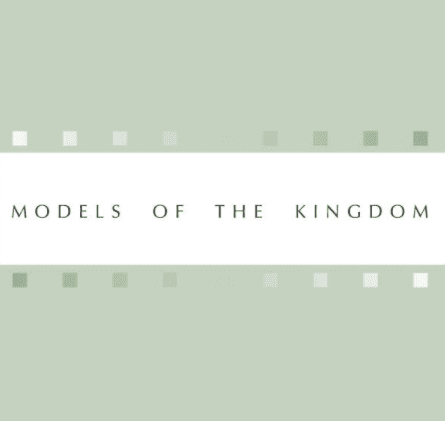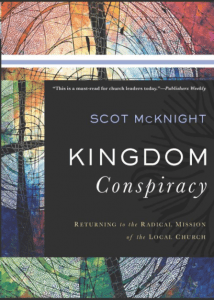 My proposal for understanding kingdom is that we need to let the Bible’s use of the term “kingdom” shape our kingdom theology. Why? Because our kingdom theology will shape kingdom mission, and what spiritual practices/disciplines we develop will follow from mission and kingdom but also reshape mission and kingdom.
My proposal for understanding kingdom is that we need to let the Bible’s use of the term “kingdom” shape our kingdom theology. Why? Because our kingdom theology will shape kingdom mission, and what spiritual practices/disciplines we develop will follow from mission and kingdom but also reshape mission and kingdom.
If kingdom means justice (often in the public and political sector), then activism is the mission and practices will involve actions like feeding the hungry. If kingdom means redemption, the mission is redemption and practices will fall in line — evangelism, healing, and the redemptive influence in the public sector.
Yes, but far more.
Kingdom has become the go-to language of approval. Kingdom is good; church is bad. We never say the “institutional” kingdom but we say the “institutional” church. We can talk about the “church-box” but no one would ever say the “kingdom-box” because in so doing we want to disparage or at least criticize the church. No one seems to want to criticize the Bible’s vision of kingdom. People open up the word kingdom and pour into it all their favorite ideas but seem to open up the word church and pour into it all their negative ideas and at best their realistic ideas. (More about this in another post.)
My proposal in Kingdom Conspiracy is that kingdom in the Bible has five core ideas and kingdom can be defined this way: a kingdom is a people ruled by a king. I break that definition into five elements:
1. A kingdom has a king.
2. A kingdom has a king who rules or who exercises redemptive power.
3. A kingdom has a king who rules a people.
4. Kings rule by way of a law.
5. Kings establish their rule in a place (land).
Five questions follow:
1. Who is the king?
2. How is this redemptive power or rule exercised?
3. Who is the king’s people?
4. What is this king’s will?
5. Where is the kingdom today?
Answer each and combine them and we can arrive at an answer of what the Bible means by kingdom.
In the history of the church each of these elements has been appreciated or emphasized in various ways and according to various locations. It will come as no surprise that Israelites and messianic Jews find #5 to be of value while Gentiles with little sense of the OT narrative don’t value #5.
But there’s more: the emphases of the late 20th Century have been on #2 and #4. Some emphasize the kingdom as God’s rule or God’s reign, and can be quite overt that kingdom does not mean place or “realm.” For some kingdom is about evangelism (a very evangelical thing to make it) or healing (a very charismatic thing to make it). One has to either ignore the OT or believe the NT totally disconnects “kingdom” from Israel or from land so that from Jesus on it means only reign or rule (and no longer realm). Inside some emphases on #2 is that God “rules” over all creation so therefore “kingdom” is any element of creation and created order and created people that is coming in line with God’s designs. Another theme in the emphasis on #2 has been it’s Now but Not Yet idea: the kingdom arrives in Jesus but there is a future final kingdom in the Age to Come.
Others think kingdom is about ethics or law (#4), and so kingdom is wherever God’s will is done. Or, what is more common, kingdom is wherever justice and peace come into expression among people.
My proposal is that while these themes are important (rule, reign, justice, peace), the kingdom cannot be reduced to these without doing damage to one of the other elements.
My contention, too, is that #3 has been ignored to the detriment of the church.
Kingdom in the Bible entails all five and we would do well to bring back this five-fold emphasis in our talk about kingdom today.
Kingdom refers to a people ruled by a king.
Who is the king? Who is the king’s people? How does this king rule? Where is this king’s rule?
What does mission look like when we take all five into consideration?
What practices are to be developed if we take all five into consideration?











